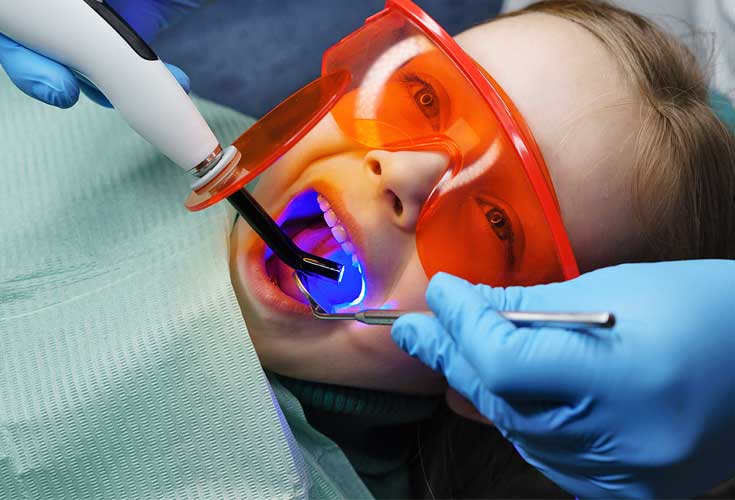Dental Fissure Sealants
What are dental fissure sealants?
Fissure sealants are a white or clear composite resin, similar to a white tooth filling. The sealants provide a barrier against bacteria that can cause plaque. They prevent tooth decay and cavities. Dentists recommend fissure sealants for adults who have a history of cavities.

Which teeth should be sealed?
Molars and premolars have pits and fissures on their biting surfaces. Our dentists will examine the teeth and determine whether they require sealants based on the depth of the fissures. Only teeth with deep grooves require sealing, not for those with shallow grooves.
When dental fissure sealants should be applied?
Due to children’s difficulty cleaning food and bacteria stuck in their fissures, decay and cavities occur. Sealants fill in pits and grooves in dental fissures. By doing so, it prevents plaque and decay from forming on the teeth. Ideally, sealants should be applied between the ages of six and seven when the first permanent teeth start to emerge. Between the ages of 11 and 14 years, the remaining teeth are sealed as they grow. As a result, the new tooth will be protected from bacteria setting in and decaying.

The procedure
Sealants for dental fissures are painless and easy to apply. There is no need for anaesthesia and it normally takes a few minutes per tooth. Usually, they are made from clear or white plastic. The dentist will:
- Clean the tooth and dry it
- Prepare the tooth surface for bonding
- A dental light is used to set the sealant in the fissures
Finally, the dentist will check your bite and polish off any excess sealant.
After the procedure
Keep your mouth healthy by brushing twice a day. You will find it easier to clean your teeth since your toothbrush will reach all surfaces. Make sure you visit your dentist regularly for dental check-ups. The dentist will examine the sealant to see if it is in good condition. Occasionally, sealants can fall off or wear out over time, requiring reapplication.
Dental Fissure Sealants - FAQ
1. Will I feel any pain?
It is a completely painless procedure. Afterwards, you won’t feel the sealants while chewing or drinking.
2. How long do pit and fissure sealants last?
Your dental team will still want to check Sealants regularly even though they last for many years. Sealants can wear out over time, and sometimes the dental team needs to add or replace some to ensure that no decay can start beneath it. We invite you to visit Dental at Forest Hill regularly for a dental check-up.
3. Do I still have to clean my teeth?
Keeping your teeth clean and healthy after the procedure is easier with a smooth, sealed surface. Maintaining good oral hygiene is essential. Cleaning the teeth will be easier since the brush will reach all surfaces.


